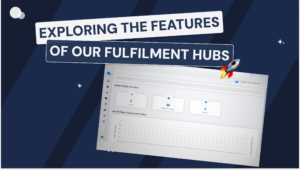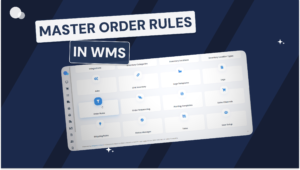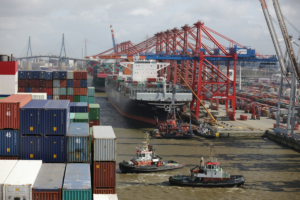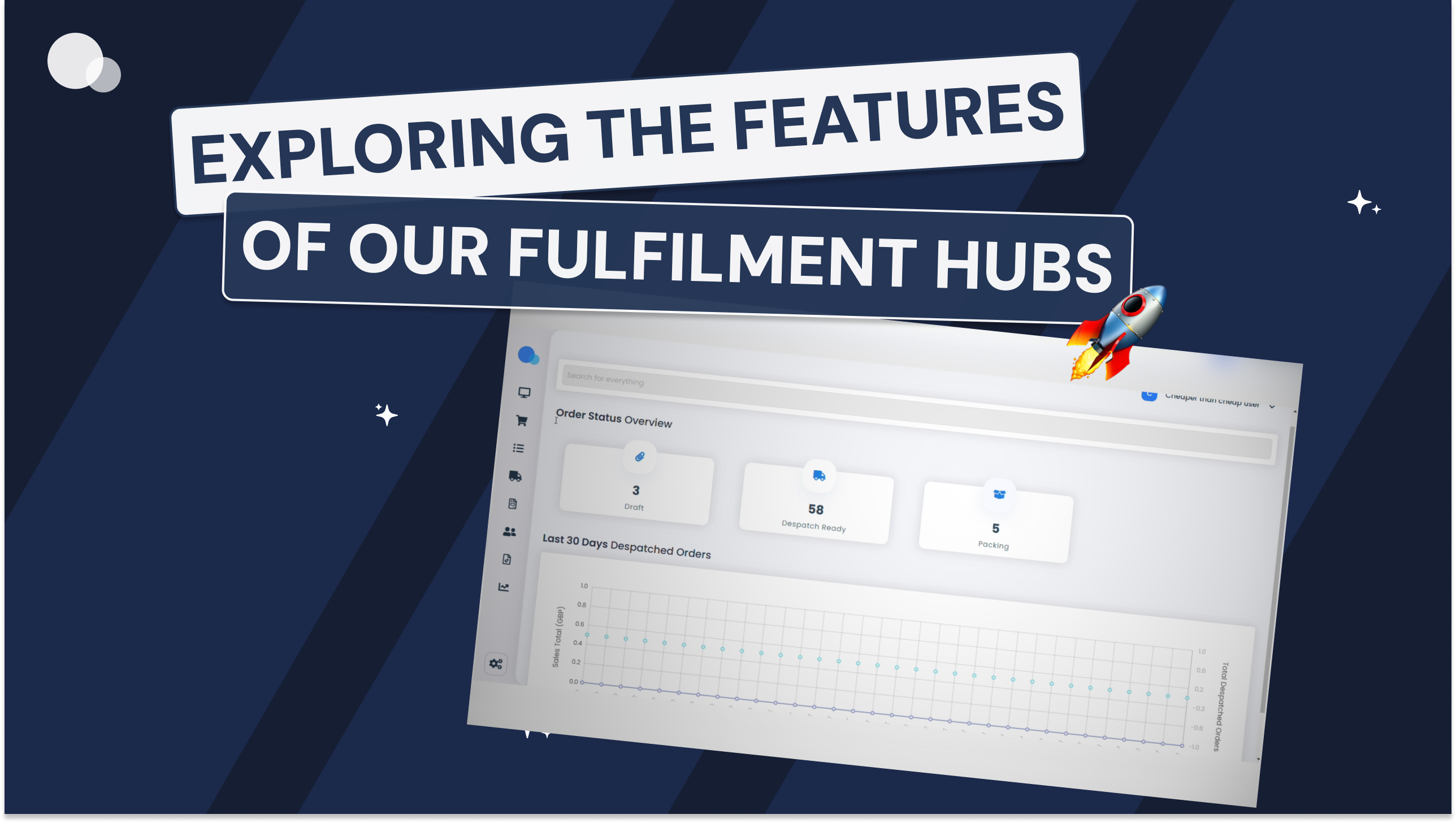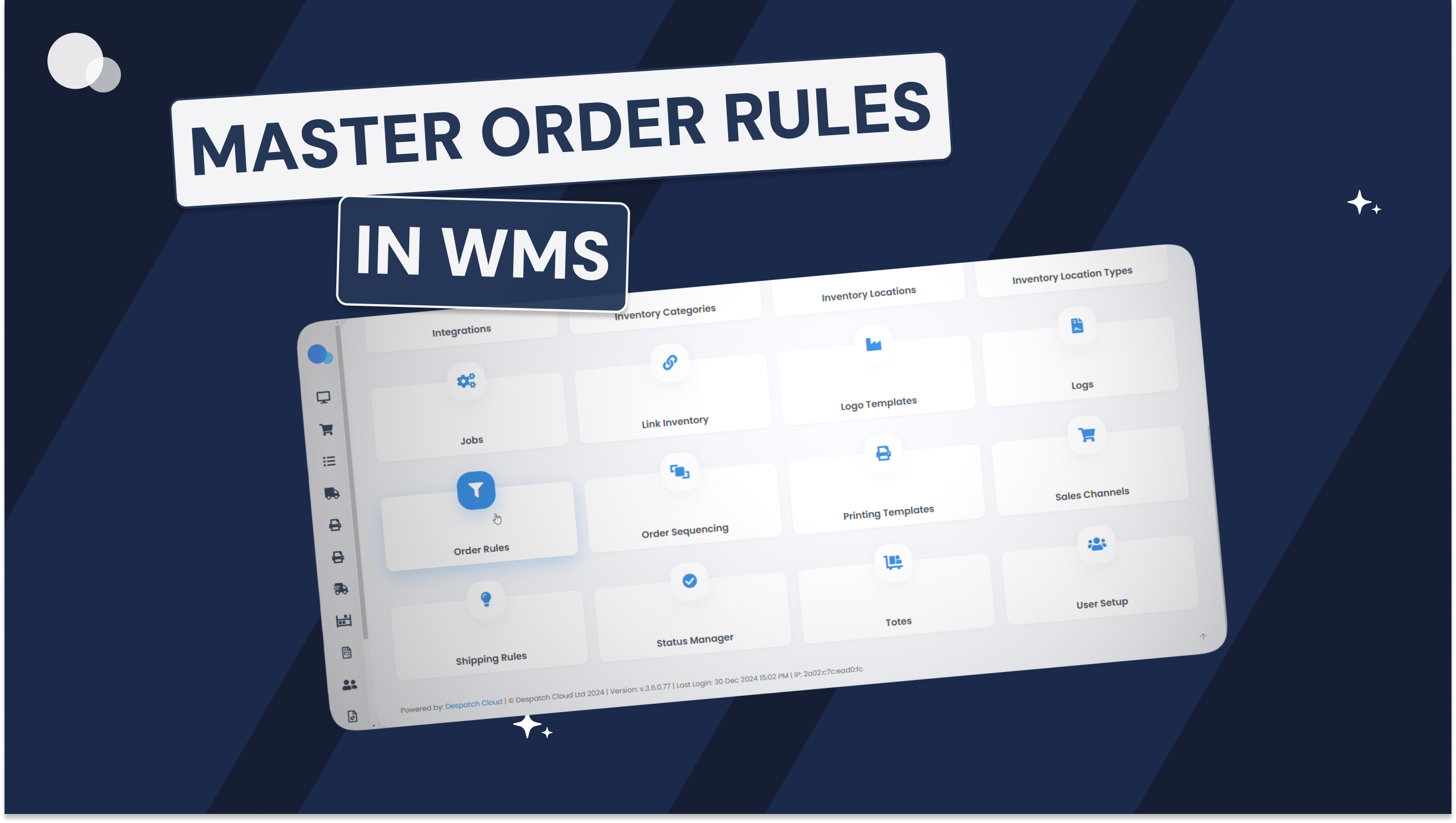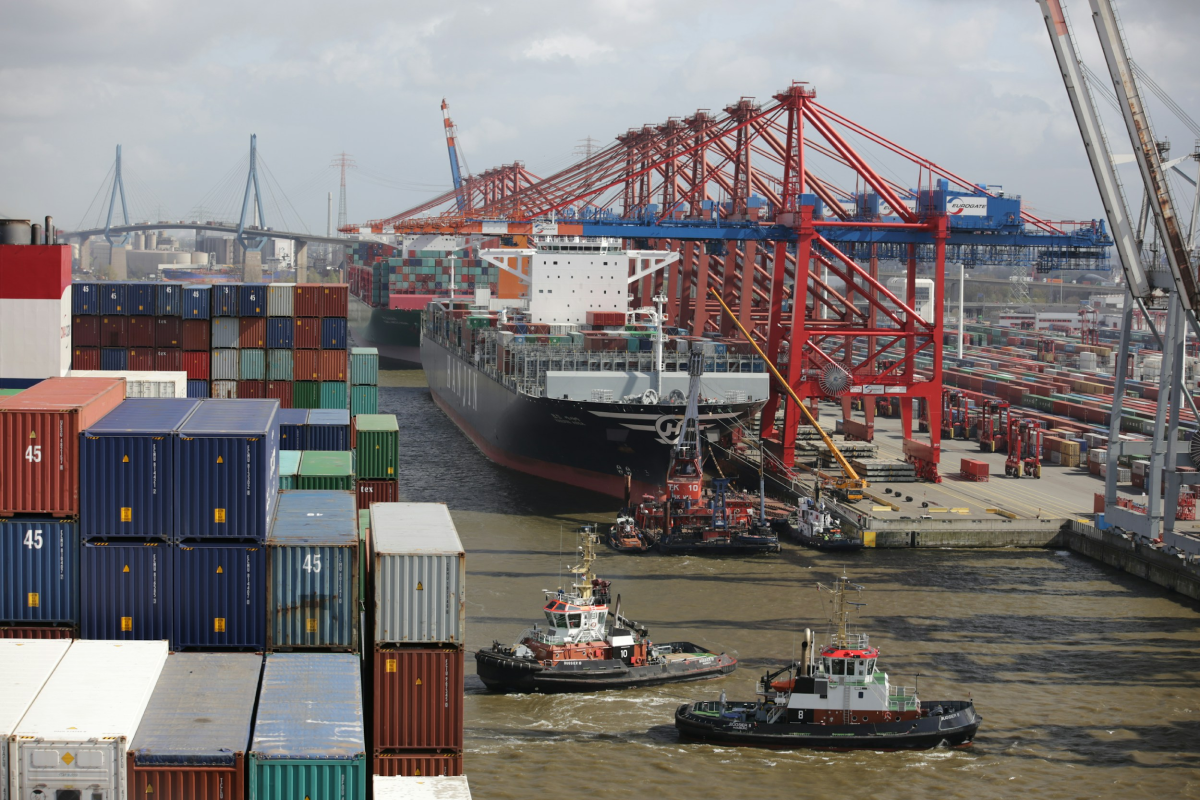In today’s post, we’ll take a look at the Windsor Framework, a new development between the UK and the European Union that’s making waves in the world of trade. Whether you own a warehouse business or operate in eCommerce, the changes introduced by the Windsor Framework are something you should understand. Matthew Dunne, founder of Helm, breaks down the essentials of this agreement and how it might impact your business.
What is the Windsor Framework?
The Windsor Framework is a pivotal agreement between the UK Government and the European Union, set to bring significant changes to the way businesses in Great Britain send parcels to Northern Ireland. Effective from 30 September 2024, these new arrangements effect all businesses who trade from or with Northern Ireland and aim to streamline customs procedures while ensuring regulatory compliance. As businesses brace for these changes, understanding the nuances of the Windsor Framework becomes essential for maintaining smooth operations and avoiding potential disruptions.
At Helm we are working hard with our courier partners to ensure that we can support our clients through this transition.
Why Does the Windsor Framework Matter for Warehouse Businesses?
For warehouse and eCommerce businesses, the Windsor Framework can make a significant difference. The framework introduces new systems and processes that simplify how goods move between Great Britain, Northern Ireland, and the EU. This change directly affects supply chains, import/export operations, and overall business efficiency.
Key Points Businesses Need to be Aware of:
- Goods now need to have a custom description. Unlike the product titles, these need to be general to the product. “Child’s garment”, “Soap” or “Mobile phone” will help identify the product, while generic terms such as “Goods” or “Gifts” should be avoided. This is required for all goods irrespective if they are going to businesses or consumers.
- Couriers will need to be told if an item is being sent to a consumer or to a business as different rules and processes apply depending on whether the shipment is a business-to-business or business-to-consumer transaction.
- If you sell B2B, you are going to have to make some additional changes. This means sending the commodity code for each item you send, as you would for export.
Comodity codes vs HS codes
HS (Harmonized System) codes are a standardised numerical method of classifying traded products, developed and maintained by the World Customs Organisation (WCO).
These codes are crucial for international trade as they ensure that customs authorities worldwide can uniformly identify and process goods. By assigning a unique six-digit code to each product, HS codes facilitate accurate tariff calculations, trade statistics, and enforcement of trade regulations. They help streamline customs procedures, reduce errors and disputes, and ensure compliance with international trade laws, thereby promoting efficient and transparent global trade.
The commodity code is the 6 digits of the HS code but with an additional 4 digits to give more granularity on the product.
Key Changes Under the Windsor Framework
The Windsor Framework introduces a dual approach for parcel movements, distinguishing between private individuals and business entities. For private individuals in Northern Ireland receiving parcels directly from friends, family, or businesses in Great Britain, the process remains largely unchanged. There will be no customs declarations, tariffs, or presentations of goods to customs authorities, maintaining the simplicity of personal parcel movements. However, couriers are required to submit data on these parcel movements to HMRC.
Conversely, parcels sent between businesses will face new customs procedures akin to freight movements. These parcels can move using ‚green lane‘ simplifications if eligible, minimising routine checks and controls. Interventions will only occur based on a risk-based, intelligence-led approach, ensuring that compliance does not translate into unnecessary delays.
Green Lane for Trusted Traders
The new Windsor Framework introduces a simplified „green lane“ for goods moving from Great Britain to Northern Ireland. Traders authorised under the UK Internal Market Scheme (UKIMS) will be able to use this lane, which drastically reduces customs checks and paperwork. From 30 September 2023, a broader range of traders can declare goods „not at risk“ of entering the EU, easing their movement into Northern Ireland. By 30 September 2024, these goods will be fully relieved from international customs requirements.
Simplified Data Submission
Traders using the green lane will provide a significantly reduced dataset based on existing commercial information, simplifying the movement process. This includes key data fields typically held by traders or hauliers and reduces the need for supplementary declarations. The Trader Support Service (TSS) will also assist traders by auto-populating many of these fields, ensuring smoother transit.
Introduction of Goods Profiles
Instead of submitting detailed commodity codes for each movement, “green lane” traders will create a unique goods profile. This profile links goods descriptions to relevant codes and simplifies the customs process, reducing the need for 10-digit codes to just 6 digits in most cases. HMRC will automatically populate the profile based on past movements for existing traders, and the TSS will support new traders in setting up their profiles.
Please note: For B2B shipments, you are still required to send specific commodity codes and general descriptions for customs purposes, particularly if you’re not using the green lane.
Customs Procedures for Controlled Goods
Some goods, such as sanitary, phytosanitary (SPS) items, and those subject to specific controls (like endangered species), may still require additional steps. For SPS goods, the Retail Movement Scheme (ReMoS) will apply, offering simplified data requirements and separate procedures for agrifood retail goods. Controlled goods may need specific codes or additional information, with further guidance to be provided by the Government.
Alternative Simplifications
Traders also have the option to use alternative procedures, such as Entry in Declarants Records (EIDR), allowing them to complete the reduced dataset within their own systems and submit an aggregated monthly declaration. This route may benefit those wishing to manage multiple movements at once but will still require supplementary declarations.
Types of Parcel Movements and Requirements
The framework categorises parcel movements into four types: Business to Consumer (B2C), Consumer to Business (C2B), Consumer to Consumer (C2C), and Business to Business (B2B). Each type has specific requirements:
- Business to Consumer (B2C) and Consumer to Business (C2B): Businesses sending parcels to private individuals in Northern Ireland, or individuals returning items to businesses, do not need to complete customs declarations. Instead, authorised carriers will collect standard information, such as recipient details and parcel contents. These parcels must comply with weight limits (31.5kg for multiple items or 100kg for a single item) and avoid restricted goods.
- Consumer to Consumer (C2C): Private individuals sending non-commercial parcels to other private individuals in Northern Ireland are exempt from customs declarations. Carriers will gather necessary data during the postage purchase process, ensuring compliance with weight limits and restrictions.
- Business to Business (B2B): Business parcels will follow the ‚green lane‘ process if authorised under the UK Internal Market Scheme (UKIMS). This entails declaring goods ’not at risk‘ if they are for sale or final use by end consumers in the UK, exempting them from duty and reducing data requirements. Goods ineligible for the green lane must comply with full customs declarations.
Role of Authorised Carriers
Authorised carriers play a crucial role under the Windsor Framework. They will ensure that parcels adhere to the correct requirements and provide necessary data to HMRC. The authorisation process will begin ahead of the new arrangements to give carriers ample time for compliance. To be authorised, carriers must be established in the UK, have a high level of operational control, and demonstrate compliance with relevant legislative requirements.
Operational Implications for Businesses
For businesses sending parcels to Northern Ireland, the Windsor Framework requires adjustments to current practices. Ensuring that parcels meet the stipulated criteria and working with authorised carriers will be essential to navigating the new landscape. Businesses should also be prepared to provide detailed information about parcel contents, weight, and destination.
The framework’s emphasis on risk-based controls underscores the need for vigilance against smuggling and other illegal activities. Businesses and carriers alike must collaborate closely with HMRC to uphold the integrity of the system and mitigate risks.
What Should Warehouse Businesses Do?
With the Windsor Framework introducing significant changes, warehouse and eCommerce businesses need to act now to stay compliant and maintain efficiency. Here’s a quick guide on what steps to take:
Review and Update Customs Procedures: Start by assessing your current processes for shipping to Northern Ireland. The new rules mean you might need to provide specific commodity codes and more detailed product descriptions. Make sure your team is familiar with the difference between HS codes and commodity codes, and update your systems to handle these changes seamlessly.
Work with Authorised Carriers: Partner with couriers who are authorised under the new framework. They’ll help ensure that your shipments use the correct lanes (like the green lane for low-risk goods) and comply with HMRC’s data submission requirements. This is especially crucial for B2B shipments, where compliance with customs procedures will be more stringent.
Simplify Data Submission: Streamline your operations by leveraging tools like the Trader Support Service (TSS), which can assist in automatically populating data fields for parcel movements. This reduces manual work, speeds up processes, and lowers the chance of errors.
Prepare for Controlled Goods: If your business deals with controlled or SPS goods, such as food or plants, additional procedures will apply. Familiarise yourself with the Retail Movement Scheme (ReMoS) and ensure your team is aware of any extra documentation required for these shipments.
Train Your Team: The new requirements can feel complex, so educating your team about the changes is key. Provide training on how to handle parcel shipments under the Windsor Framework and how to categorise them correctly (B2B, B2C, etc.).
By taking these steps early, you’ll be in a strong position to navigate the new landscape, avoid potential delays, and ensure smooth operations for your business. At Helm, we specialise in helping warehouse and eCommerce businesses adapt to changes like these. Our comprehensive solutions ensure that your parcels comply with the new requirements, providing peace of mind and operational efficiency in the evolving regulatory landscape.
The Future for Warehouse Businesses
The Windsor Framework is part of a broader effort to create a more seamless trading environment post-Brexit. For warehouse businesses, this means an opportunity to streamline operations and reduce friction in supply chains. Less time spent dealing with red tape allows you to focus more on growth and innovation.
While change can be challenging, the Windsor Framework represents a step forward in simplifying trade. We at Helm are here to guide you through these updates and help you thrive in this evolving landscape.
Conclusion
The Windsor Framework represents a significant shift in the management of parcel movements from Great Britain to Northern Ireland. While private individuals will experience minimal changes, businesses must adapt to new customs procedures and leverage authorised carriers to ensure compliance. As the 30 September 2024 deadline approaches, understanding and preparing for these changes will be crucial for businesses aiming to maintain seamless operations across borders.
Need More Help?
For effective cross-border parcel management, Helm offers robust solutions to meet your needs. Get in touch today to learn more about how we can support your business under the Windsor Framework.



